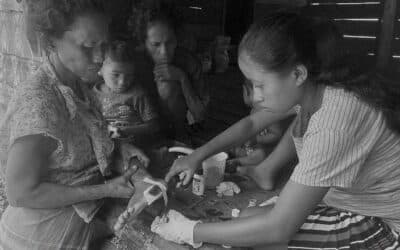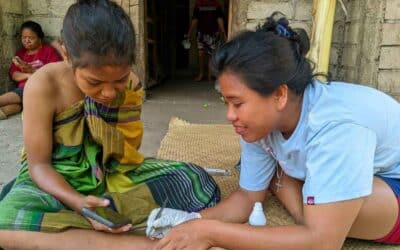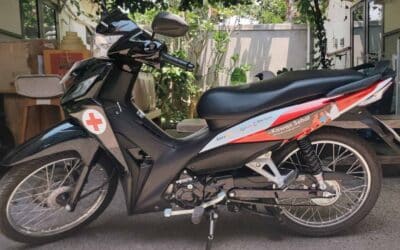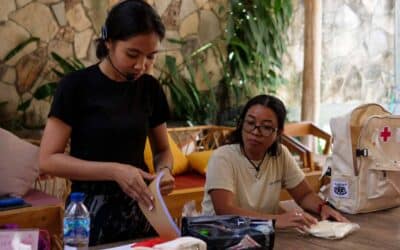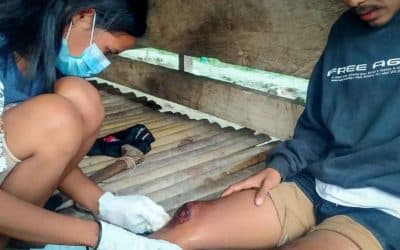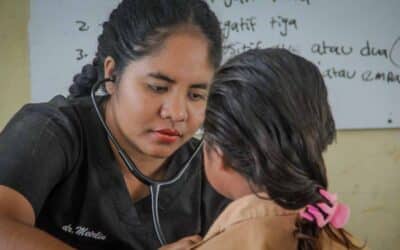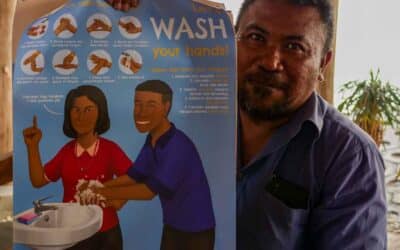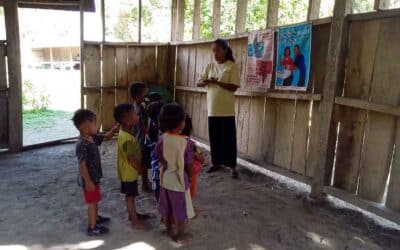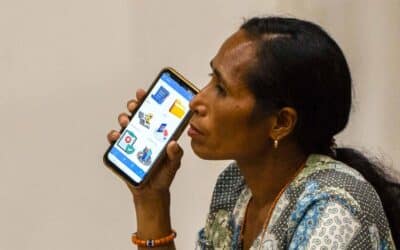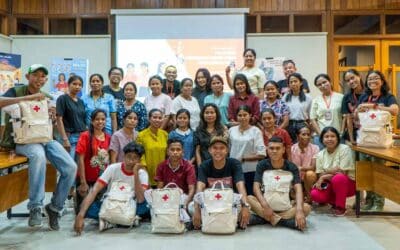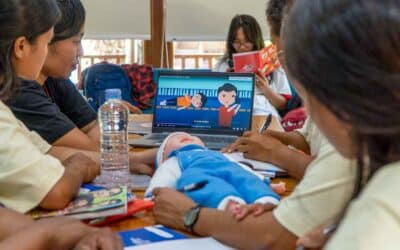In the village of Lahiru, Ibu Sarlota, a health worker with Kawan Sehat, swiftly attended to a young boy's severe foot...
Malaria continues to pose a daily threat in this area. Through Kawan Against Malaria, we monitor cases, test all fevers, protect homes, and educate families. The use of bed nets, spraying, and prompt treatment turns statistical data into lives that endure quietly, rather than ending prematurely.
Donate
Support Care
Programs
All projects
Quick News
Field updates
Stories
Field stories
Delivering essential medical care in villages with no clinics or doctors, saving lives and building trust.
Kawan Sehat: Health Workers Bring Care to Rural Indonesia
Kawan Sehat healthcare workers provide vital medical services and education to remote villages in Indonesia. Through photos showcasing their resilience and life-saving commitment, this article emphasizes their essential role in underserved communities and the impact of grassroots healthcare initiatives.
New Scooter for Erwin to Deliver Medical Supplies
We’ve invested in a new scooter for Erwin, our Primary Medical Care field coordinator. This off-road-capable scooter will help Erwin reach even the most remote Kawan Sehat health agents to deliver and restock medical supplies. It’s a small investment of 1,000 Swiss francs, but one that will undoubtedly save lives.
Kawan Sehat Agent Tirza Presents Life-Saving Field Work
Tirza, an agent for Kawan Sehat, expresses her dedication to delivering essential healthcare in the remote regions of...
Kawan Sehat Workers Treat Dozens of Cases Daily
The daily case load managed by Kawan Sehat health agents through the #PrimaryMedicalCare program is truly remarkable. Each day, they deliver crucial first aid services, saving lives and enhancing health for individuals who lack access to basic care. Visit our photo gallery to see the extraordinary efforts of these women and the foundation at work on site.
Medical Teams Deliver Care in Rural East Sumba
Fair Future’s medical teams, led by Dr. Narni, offer vital healthcare services to remote villages in East Sumba. Utilizing the Truck of Life, they address illnesses, combat malnutrition, and advocate for clean water access to ensure no community is overlooked. Their commitment is essential in regions where healthcare remains out of reach and infectious diseases go unchecked.
14-Year-Old Girl’s Critical Medical Treatment Begins
A 14-year-old girl from Hudumburung, abandoned by her family due to poverty, has endured severe illness for years. Thanks to Kawan Sehat’s intervention, she is now undergoing essential medical tests and receiving care—her first step toward a better future. Many more children in remote regions remain without help.
Healthy Living Posters Distributed to Local Health Centers
We have distributed our healthy living posters to local Puskesmas (health centers), and their directors were delighted. The posters are engaging and easy to comprehend, incorporating local characters and language. Teaching rural communities simple methods for disease prevention, such as handwashing, is truly rewarding.
Kawan Sehat Health Agents: Lifesaving Work in Rural Areas
Kawan Sehat health agents deliver essential medical care in remote regions where healthcare access is unavailable. Armed with new medical kits, they provide vital first aid, treat common illnesses, and work to prevent infections in vulnerable communities.
Kawan Sehat App Revolutionizes Rural Health Care Access
The Kawan Sehat app, developed by Fair Future, revolutionizes rural healthcare. It enables health agents in remote...
Kawan Sehat Health Agents Certified in Rural Sumba
In the remote communities of East Sumba, 20 new Kawan Sehat health agents have been certified through the Primary Medical Care program. These 19 women and one man are now essential providers of life-saving care in their villages, which lack formal healthcare facilities. Their dedication and increasing proficiency are crucial for the well-being of their communities, representing a significant milestone in rural healthcare.
Empowering Health Agents Through Vital Training
This life-saving training is part of Fair Future Foundation’s mission to equip health agents with essential skills to treat illnesses and injuries in ultra-rural areas. The training empowers these agents to act swiftly and improve healthcare access for thousands of vulnerable people.



